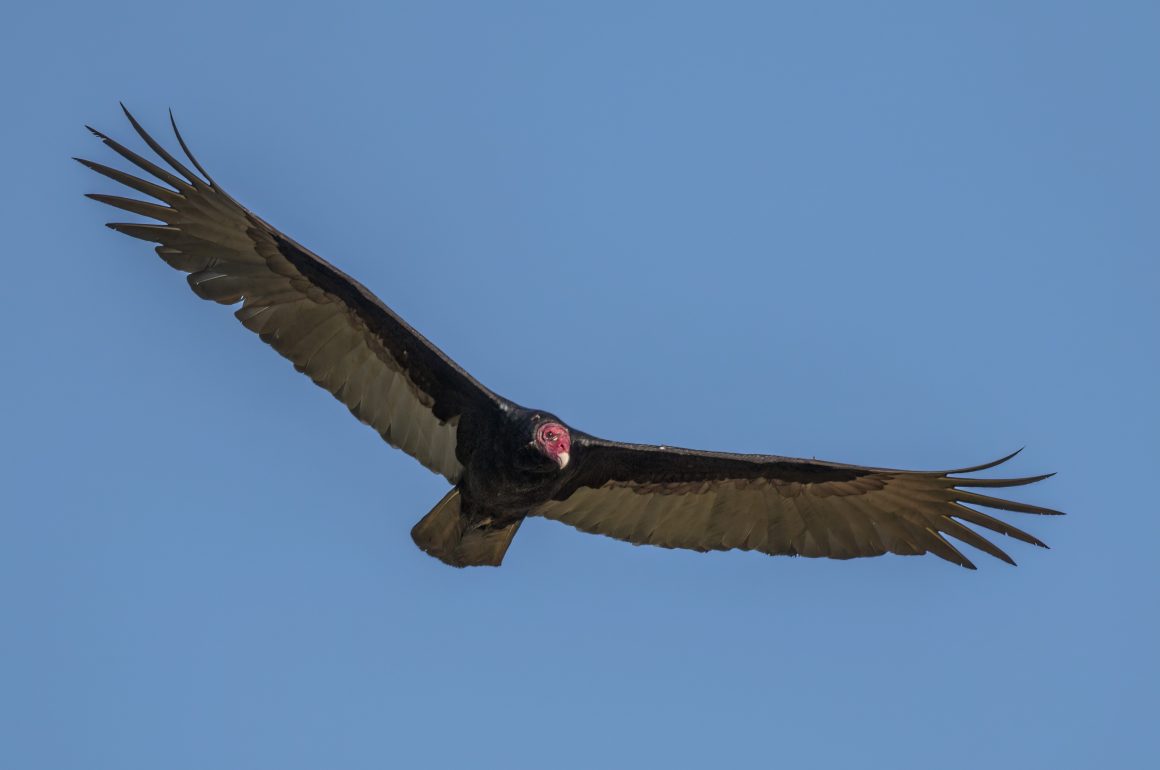
Birds are equipped with the sensory apparatus for detecting odours, but they depend on their sense of smell far less than mammals do. So, if you find a baby bird out of the nest, you can put it back. The parents won’t reject it, because they won’t smell your human scent on it.
Great Horned Owls prey on skunks. The owl is not bothered by their stink and their nest can sometimes be located by the stench of skunks.
Turkey Vultures are an exception. Their good sense of smell helps them to locate dead carcasses. Black Vultures will follow Turkey Vultures, knowing that they will lead them to food. Gas companies add a rotten-egg smell to their product. If there are leaks in a pipeline, the vultures will be attracted to the area. This helps the companies to track the source of the leak.
Some seabirds will be attracted to fishy odours from far away. This group includes albatrosses, shearwaters, and storm-petrels.
For the chemistry of bird smell, see previous 10000 birds article by Kai Pflug.
Note: Photo of Turkey Vulture at top of article by Charles J. Sharp, posted to Wikipedia Commons, an online source of copyright-free photos.






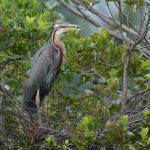

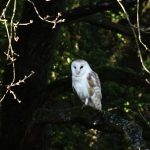
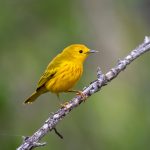
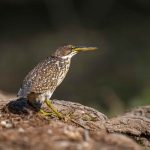


I like tubenoses so much that I go on pelagic tours to see them. The chum (to attract them) smells terrible yet I have never been seasick on these trips. However, whenever I go out for anything other than birds I do get greenish ‘round the nose. Ask a birder: why??